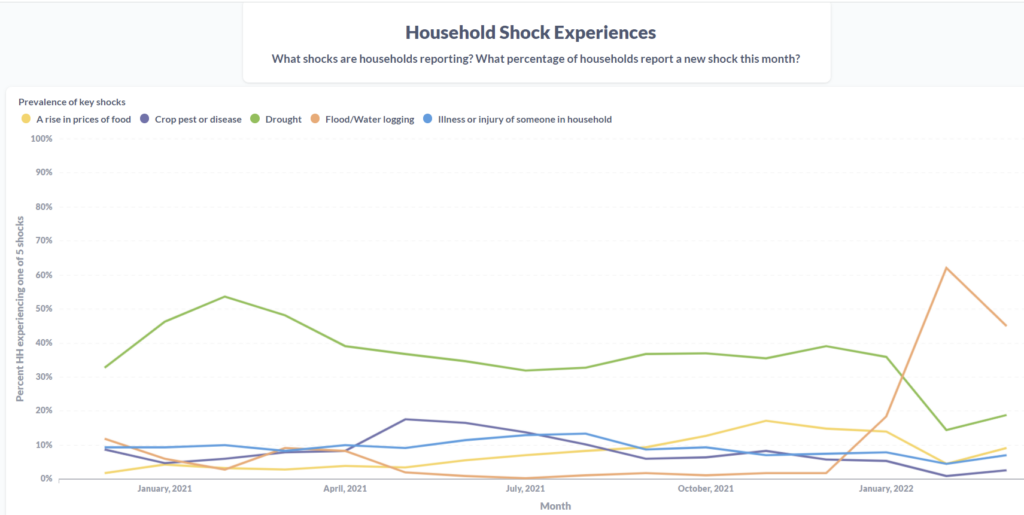Humanitarian needs in Malawi have been steadily increasing – up to 1.9 million people were projected to be unable to meet minimum food requirements in 2020 and a further 4.3 million were projected to experience food stress. Low crop production is the primary determinant of humanitarian caseloads in Malawi. Droughts and pests, like fall armyworm, contribute to low production, while persistent stressors such as poor soil, crop disease, pest pressure, and unstable markets are also important factors. Further contributing to the issue, farmers in Malawi have few alternative livelihood opportunities.
In response to these challenges, Feed the Future’s Malawi Agricultural Diversification Activity (AgDiv), is implementing a series of resilience-focused interventions through an economic growth pole approach. Implemented by Palladium on behalf of USAID, the Activity aims to 1) identify locations where private sector businesses or other organizations have already made investments, and 2) leverage these to deliver a bundle of evidence-based resilience interventions that are complementary to both, each other and to pre-existing investments in the community.
Causal Design, a SDVOSB sub-contracted by Palladium on AgDiv, is conducting a series of evaluation activities to address key learning needs of USAID and its partners. First, Causal Design is overseeing a high frequency resilience-focused recurrent monitoring survey in which data has been collected from 80 local communities across four districts in Malawi every month since late 2020. The survey is being implemented through an innovative Community Data Collection Officer model in which local community members are recruited to collect data from households from their villages. This model has proven to be a cost-effective and sustainable way to rapidly collect data: over 1,100 households are surveyed over the course of a single week. The approach also enabled continuity of operations despite COVID as it didn’t require inter-community travel or contact. These surveys provide real-time insights on the shocks households are experiencing and coping strategies they deploy to mitigate the impact of these stressors. The data is uploaded to dashboards that generate visualizations showing trends in key resilience outcomes over time. This data is also being shared back to the community and Palladium’s implementing partners to provide critical insights into household wellbeing in their areas.
Additionally, Causal Design is conducting an impact evaluation of the AgDiv program to assess the return on investment for the program in terms of household food security. To generate rigorous evidence on the impact of the program, Causal Design constructed a comparison group of households in non-AgDiv areas through a robust matching procedure. This evidence is being used by Palladium to identify areas to focus its implementation efforts moving forward as well as provide insights for future iterations of the program. The impact evaluation was supplemented by an in-depth qualitative assessment in which we gathered perspectives from households and community leaders on enablers and barriers to long-term resilience through focus group discussions. These rich insights further contextualized our quantitative findings and provided a deeper understanding of household experiences in this fragile and dynamic context.
Finally, we leveraged the high frequency data collection to build a machine learning algorithm that generated predictions for which regions are most at risk of food insecurity in future months. These findings can be used to assess whether such a model can be utilized to inform resilience program targeting in the future. Additionally, we utilized the insights from this model to assess which characteristics about households are most predictive of their future food security outcomes. These findings shed light on possible areas for Palladium to focus implementation efforts in the future to further strengthen household resilience capacities.








